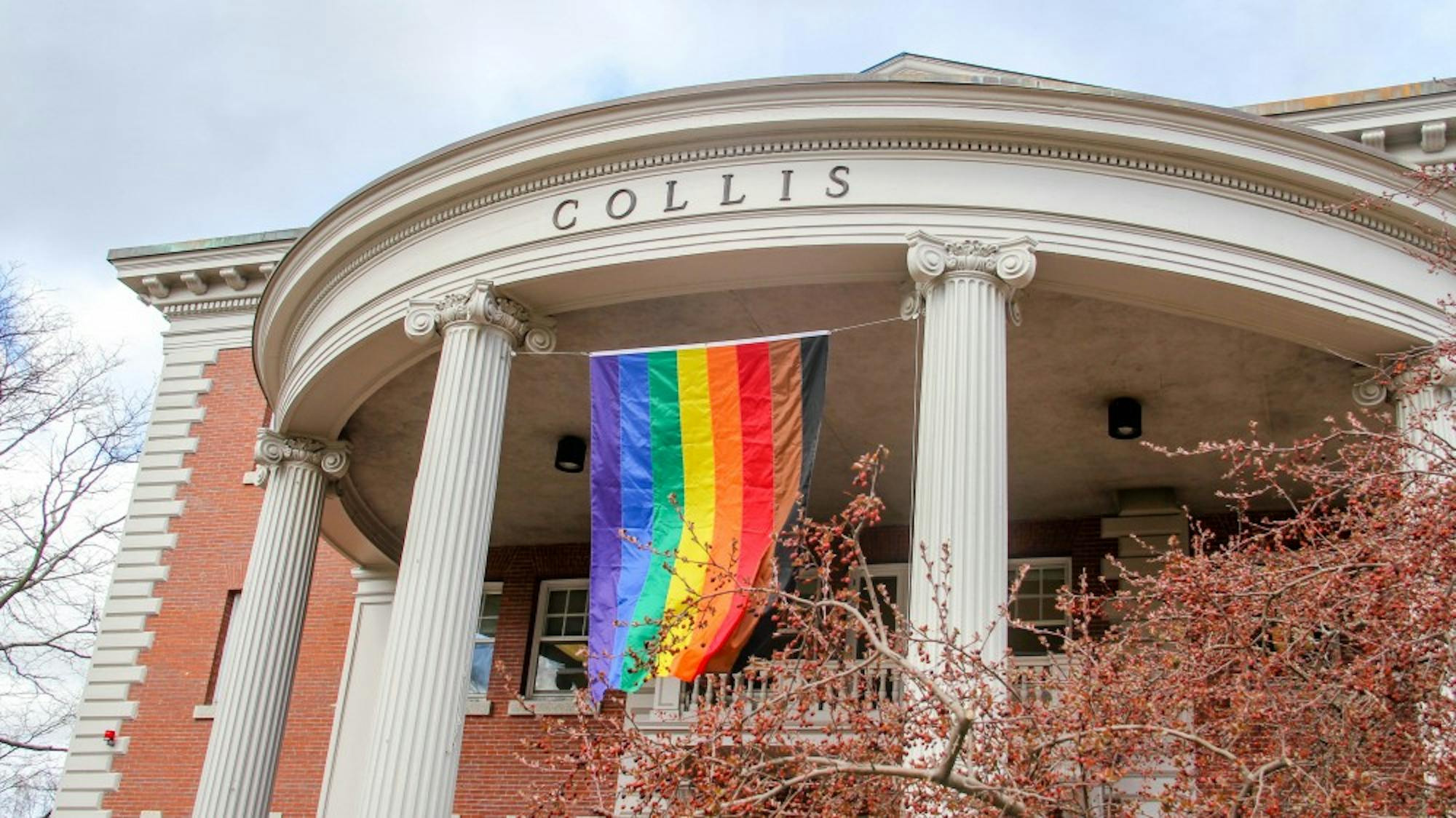From April 19 to May 3, Dartmouth will celebrate its 13th annual celebration of LGBTQIA+ Pride. A wide variety of programming will be held under the general theme of “Different Strides, One Pride” — a call for inclusivity and unity in the queer community. This year’s Pride will last for two weeks in order to accommodate the large number of events, according to Pride’s programing chair Jeremy Rodriguez ’22.
“I think it’s really important to acknowledge and celebrate everyone and include everyone,” Rodriguez said. “People from the queer community come from so many different backgrounds that it’s really important to acknowledge that and acknowledge that not everyone is openly proud and queer.”
Last year’s theme was “Queer and Here,” a theme which Rodriguez said he believes “spoke to being more out and proud about being queer.” Although this message rings true for many people, he said the committee tried to emphasize inclusivity this year.
Makale Camara ’21, a member of Pride’s programming committee, said they focused on inclusivity by highlighting the variety of lived experiences in the queer community and trying to welcome all people into Pride.
Camara said that this year’s goal was “to make Pride events and Pride spaces more accessible to people who are marginalized within the LGBT community, [including] disabled queer people, queer people dealing with mental health, queer people of color [and] queer trans people — because that is our community.”
Pride kicked off with Queer Prom on April 19. Rodriguez described the event as an opportunity for queer students to participate in a prom — something he said they might not have been able to in high school where proms are heterosexually-dominated spaces.
Pride also included a tie-dye fundraiser on Sunday to raise money for the Trevor Project, a keynote address and discussion on queer justice and anti-racism with queer activist and theologian Robyn Henderson-Espinoza on Tuesday and a “voguing” workshop yesterday.
Upcoming Pride events include Rainbow Roller-Skating on Friday, a comedy show from queer stand up comedian and “The Daily Show” correspondent Jaboukie Young-White on Saturday, a fashion and drag show put on by queer student performers show called Transform, a screening of the film “Moonlight” and Lavender Graduation — a celebration of graduating students who have made a lasting impact on Dartmouth’s LGBTQIA+ community. Camara, the director of Transform, described the event as, “a bit of a drag show, a bit of performance and a really good time.” But according to Camara, the event has a deeper meaning.
“In my mind it is a celebration of queerness, queerness not being like a word for sexuality, but queerness being theoretical non-normatives,” Camara said. “Finding ways to celebrate outside of mainstream culture which is often ... for me and for us, speaking as someone who is part of the queer and black communities, normally against us.”
All Pride events aim to create unity in a queer campus community that many students feel is fragmented, Rodriguez said.
This lack of cohesion was a concern for Samantha Locke ’22 when she was deciding which school to attend last year. She said Pride had a large impact on her decision to commit to Dartmouth. During her visit, she said she spoke to members of the queer community and participated in Pride programing, which she said made her feel connected to and accepted at the school.
“Going to Pride and seeing it here — just seeing the Pride flag in front of Collis — I was so shocked and pleasantly surprised to see it,” Locke said. “And it was really fun for me, and that’s why I decided to take the risk to come here.”
For Rodriguez, creating community and unity means prioritizing queer leadership.
“Pride should be a celebration of queer identities, and it should be queers leading that movement — it shouldn’t be non-queers leading that movement,” he said. He noted that non-queer people can still participate in Pride events, but the events should prioritize queer students.
“It’s definitely important to include non-queers, don’t get me wrong, but it’s just [that] some events should be just to unify the queer community,” Rodriguez said.
This year marks the 50th anniversary of the Stonewall uprisings in New York City, which is generally considered to be the catalyst of the national Pride movement. Members of Dartmouth Pride’s planning committee did not incorporate the anniversary into its celebrations but noted the event marks an important milestone in queer history that marks the progress of the movement as well as the work that still needs to be done.
Sophia Whittemore ’20, a member of the planning committee, said she was grateful for the support and dedication that so many people put into Pride.
“Without each other [in the queer community] to lean on, we couldn’t have done it,” she said. “And without the amazing members and allies of the LGBTQIA+ community at Dartmouth, it wouldn’t have been the same hosting these events. I don’t think I’ve ever smiled so hard in my life than seeing these events come together.”




